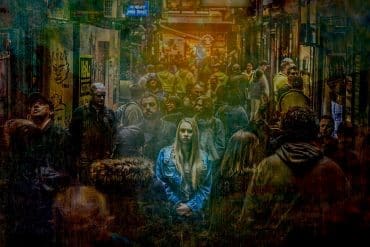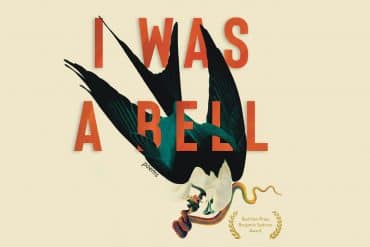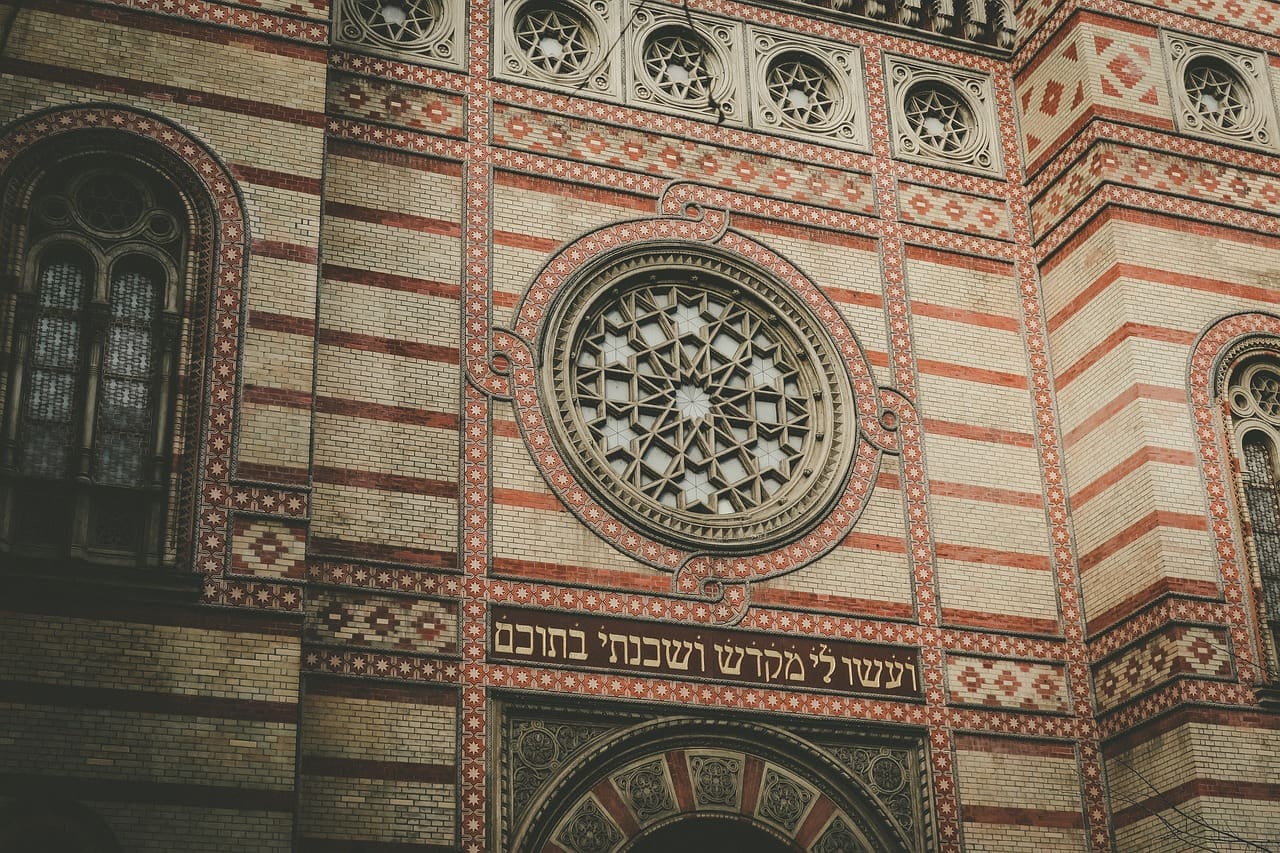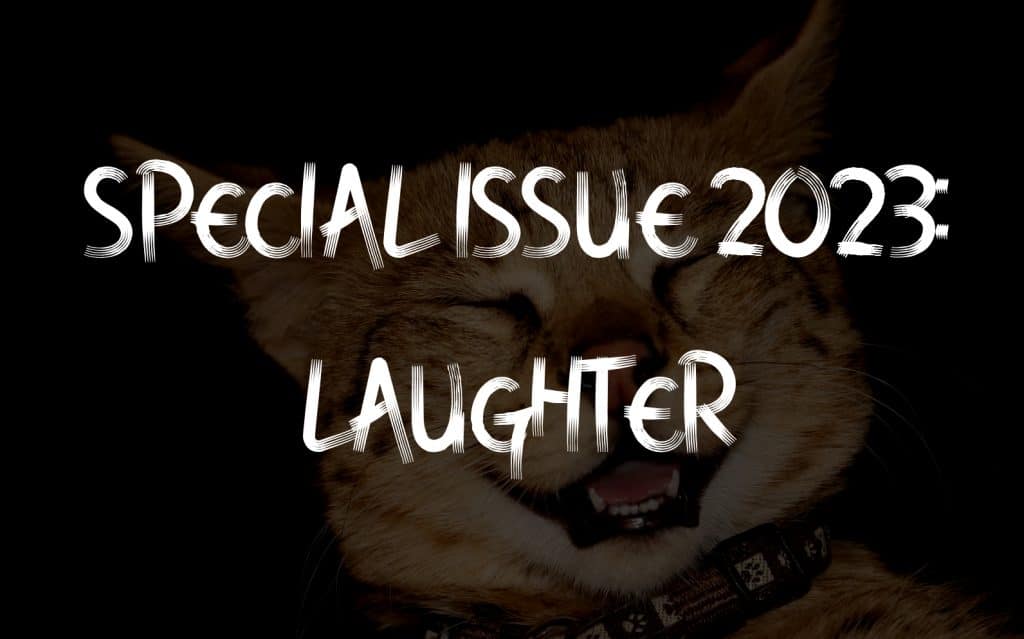
Man of Song: Faith, An Autoethnographic Elegy for My Father
Author’s Memo
Growing up, my second home was the synagogue at which my father played the role of Cantor. The congregants were my surrogate parents and grandparents, and my father was their spiritual leader–until, that is, contract negotiations reared their ugly head, at which point my father became a financial problem with no easy solution. As a witness to this hypocrisy, my relation to organized religion became tormented. Nevertheless, Jewishness infiltrates my senses.
“Your stories are funny, like Woody Allen” was the constant refrain I heard in fiction workshops. I loved hearing that my writing was comic, but I hated being compared to that overblown, overrated asshole. I found his movies navel gazing, his humor obvious, his Jewishness a mere parlor trick to entertain the goyim whose praise he so clearly desired. Nevertheless, I am a Jewish writer obsessed with the darkly comic, and so the only way I’ve been able to make peace with my Jewish identity is by making a joke of it.
“Dead” isn’t “peace,” it is finality and absence.
When my father died too young from cancer, rather than strengthening my faith, it pounded the final proverbial nail into the coffin. I resented the beatification of my human father, and I resented the notion that I should feel “at peace” because my father was “at peace.” “Dead” isn’t “peace,” it is finality and absence.
As a witness to this hypocrisy, my relation to organized religion became tormented. Nevertheless, Jewishness infiltrates my senses.
And so I wrote an essay for all of us who find no answers in death and who laugh in the face of those who tell us to count our blessings. I wrote a study of my own faith, bankrupt as it may be, through the lens of Jewishness as I define it for myself.
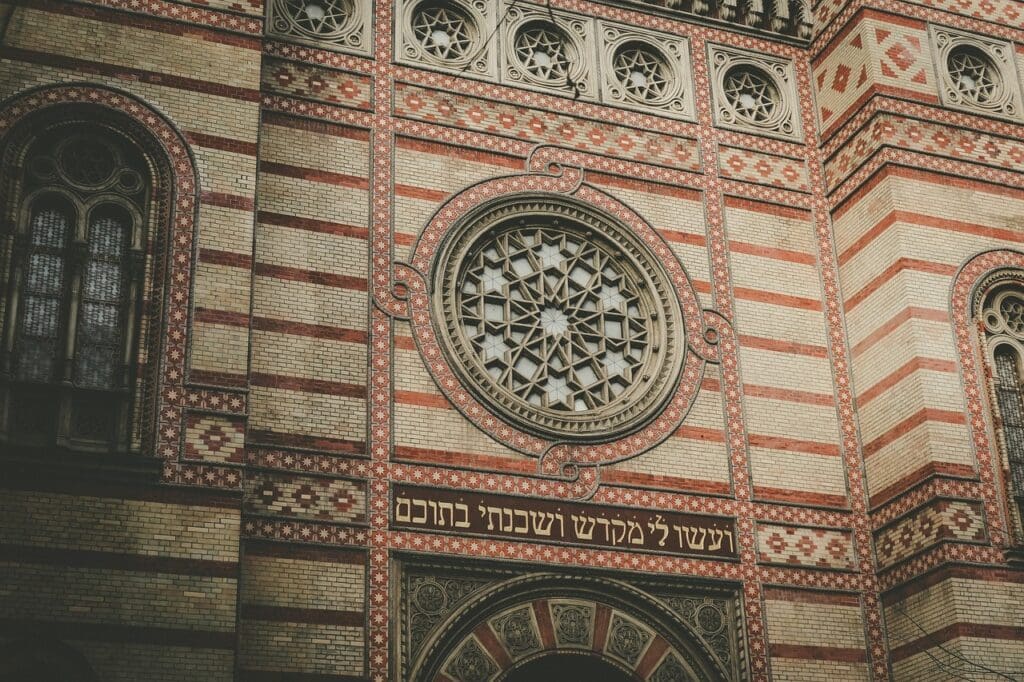
Man of Song: Faith, An Autoethnographic Elegy for My Father
Circumcise therefore the foreskin of your heart, and be no longer stubborn. (Deut. 10:16)
I don’t want to start any blasphemous rumors, but I think that God’s got a sick sense of humor, and when I die, I expect to find Him laughing. (Depeche Mode, “Blasphemous Rumours”)
You don’t chop foreskins with Fiskars. You use a very sharp scalpel and a special clamp called a mogen. It looks like a stainless steel tulip and dates back thousands of years—a foolproof clamp and guard that ensures the mohel snips only what they need. The entire procedure, when done by a traditionally trained mohel like my father was, takes no more than one minute and requires no more anesthesia than a thumb dunked in Manischewitz. Watching him perform a circumcision was a bizarre confluence of divergent rules: the rules of surgery, which require stainless steel, knowledge of bilirubin levels, a lab coat (for ethos), an autoclave; on the other side, the Tanach and its commandments, sacramental wine, the baby naming, the prayers, the shouts of “Mazel Tov” and brunch of lox and bagels.
He wanted to work as long as he could, and that’s why I was there. He was still capable of performing circumcision, but he needed someone to drive him to and from the various New England towns he visited in a given day. At his peak, my father could perform six brises a day and ranged in territory from Portland, Maine to Providence, Rhode Island. He zoomed through the Massachusetts highways in a Jeep Grand Cherokee, or later in life, when we worried about his recklessness, in a fancy Volvo. His vanity license plate read “MOHEL,” and people often honked at us or pantomimed a scissoring motion. A generation of Jewish men from Massachusetts was ushered into the Covenant by my father. I was not one of them; my father wasn’t a mohel yet.
“His vanity license plate read “MOHEL,” and people often honked at us or pantomimed a scissoring motion.”
He was 58 but looked 75. I followed him into his bedroom, a hospital bed taking up the space my mother’s dresser drawers had always used. My old room remained overtaken by my sister and her boyfriend. My sister’s old room held the furniture that could no longer fit in the master bedroom, and it’s the place that my fiancé, my new child, and I threw ourselves each night as sleep eluded us. In a few weeks, my father would be marrying me. In a few months, he would be dead.
“I don’t believe in heaven. I’m too pragmatic for that,” my father told me that particular night as I knelt in front of him to remove his shoes and socks.
Although I’ve been a professional writer all my adult life, I’ve never written that down. In addition to being a mohel, my father was a hazzan—a cantor, a singer, a chanter. If there is such a thing as a “Man of God,” I thought as a child and much of my adulthood, then my father was one. He chanted the Torah, taught bar and bat mitzvah students, begged God for forgiveness on behalf of his one and only congregation of 31 years.
And when you saw him sing, when you heard that pure alto tenor—that tone! that unaffected tone!—you believed he was touched by God, even if you were his first-born son sitting in a crappy folding chair for the umpteenth Saturday morning of your stifled life; even if, internally, no one the wiser, you at once loved your father’s voice and resented the notion of the God to whom he prayed; even if you so wanted his approval that you began learning the chanting of the Torah at 10; even if the first video of you is a precocious two-year-old chanting the Hanukkah prayers in flawless, parroted Hebrew; even if you will someday cut him more deeply than you can understand when you refuse to participate in the special Shabbat services to honor his 20 years at Temple Ner Tamid in Peabody, Massachusetts.
Even if, ten years after that, at 29, in what was then known as the “present,” you don’t believe in Heaven, yourself, could give two shits about it. Even if what you wish more than anything at that point is that your father would just die—please die, because it’s the most merciful thing for you and for him.
At that moment, you feel terror for him. For yourself. Because you took for granted the fact that he was at peace with his own mortality. You took for granted that he was who he seemed to be—unlike yourself—and at this final stage, there will be no reconciliation of this duality. Because there is never enough time.
As if he could read my thoughts: “I’m not ready to die.”
He wept.
“At that moment, you feel terror for him. For yourself. Because you took for granted the fact that he was at peace with his own mortality.”
It’s taken 29 years on this planet, but you are finally seeing your father cry. Crying like the five-year-old boy who has become your own, who is here, too, who just met his “Sabbah Sam” six months prior and simply fell in love, whose biological father is the Devil, who suffers from explosions of rage like emotional seizures, who suddenly realizes he has been trying to pummel you with his little baby fists for the past five minutes and then wails, “I’m the worst boy,” inconsolable and haunted, overwhelmed by all this death around him.
(Do you see? Even fifteen years later, I can’t write “I”.)
And you hear the resonance in it all. “I don’t believe in heaven.” “I’m the worst boy.” “I’m too pragmatic for that.”
*****
Circumcision is a physical manifestation of the biblical covenant between God and Abraham. At 99 years old, God promises then-Abram an heir. All he asks for in return is for Abram’s foreskin and the foreskins of all his tribe. So Abram takes a flint to his dick and does the deed. God changes his name to Abraham. This is important in two ways: God adds the Hebrew letter “hay,” a part of God’s own unpronounceable name. It also changes the Hebrew meaning of the name to “the father of multitudes.”
(Blood is everywhere in the Torah, and it’s always a sign of the Covenant. Like a prison gang: blood in, blood out.)
When Abraham circumcised his penis, he gave up his reproductive rights. What was once a process that involved two individuals now involved three: the man, the woman, and YAHWEH. Sperm and egg may unite, but it only matters if they do it in God’s petri dish.
The resulting child is a dud. The only interesting thing about Abraham’s son, Isaac, is what people do to him. He’s that friend who looks up “gullible” in the dictionary, the one that gets into Yale because his dad donated a building. Isaac never acts; he is acted upon, bound before he was born.
*****
My father’s brises started with presentation: he lined a table with those blue napkins they drape on you like a bib at the dentist’s. From his black leather medical bag, he laid out his instruments, his hands always gloved. The man he studied with in Jerusalem, an old Orthodox mohel named Yuskeh, never bothered. My father’s brises were a combination of modern hygienic techniques and ancient traditions.
In a hospital, a baby is placed on a board, strapped down, anesthetized, and then finally circumcised. The procedure can take a half hour. A brit milah takes place at the home or the synagogue, surrounded by friends and family. The baby rests on a ceremonial pillow, and rather than a board and straps, he is held down by the sandek, usually a grandfather. Prayers play a vital role.
“Blood is everywhere in the Torah, and it’s always a sign of the Covenant. Like a prison gang: blood in, blood out.”
The mohel is actually an afterthought. According to the letter of the law, the father is supposed to circumcise his son. Like a lawyer, a mohel is a professional representative. Just as it’s a bad idea to defend yourself in court, the vast majority of fathers do not have the liturgical or medical training to perform a circumcision safely. But the option is always there.
*****
The worst was when he shit his pants.
We were done driving for the day, and he needed to stop at the Temple on the way home for some papers in his office. Temple Ner Tamid was only a seven minute walk from our home. After my father became a mohel and we went from middle-middle class to upper-middle class, my parents decided they wanted a home in walking distance from the Temple. We were traditional Conservative—kept the Sabbath and the laws of kashrut. From sundown Friday to sundown Saturday, we didn’t drive or spend money.
On our walks to synagogue, my father performed his vocal exercises—light arpeggios and scales. In my favorite exercise, he traced scales in half-steps before a vocal descent, the meaningless word “zool” stretching through a series of notes that sounded random but never changed.
I admired my father’s effortless tone and yearned for it myself. When I was five, I discovered I could lend my voice vibrato. When I displayed my newfound technique to my father, he told me that I was forcing it.
Years later, when I was a teenager, my father urged me to take vocal lessons with him. But I was a writer, I had decided, not a singer. That was Dad’s bag. I wanted the music in sentence structure, in the cadence of speech, in the rhythm of phonetics.
“You could have a beautiful voice,” my father would tell me, never really understanding that it’s the “could” that muted me.
During that summer of decay, I was knee deep in a graduate thesis I had to postpone, a novel-in-stories about male rage. At the time, I was obsessed with the concept of “white space”—the literary idea that what is not written is just as important as what is, that what is printed on the page is only half the story.
(Where is my mother in this story? Where is my little sister? And where is that terrible cockapoo of theirs, the one that ate our cigarettes: Rafi—Hebrew for “He heals,” and again, there is the implied, the big ole’ “H” in heaven.)
“You could have a beautiful voice,” my father would tell me, never really understanding that it’s the “could”that muted me.
My dad called my cellphone from his own. There was panic in his voice.
“I shit my pants,” he said.
I could tell you about every detail of that building that was like my home away from home, but does it matter? It’s a synagogue on the top of a hill, boxy and old. It has an upstairs and a downstairs. Classrooms and a chapel. A kitchen and an office. An Ark of the Covenant and a Torah that survived the Holocaust. Cheap tile on the floor and wood paneling that screams 1977. It was empty that day.
I found my father in the men’s room, his pants and underwear at his ankles, his body resting against the trash can.
When my son was a baby, I had yet to enter his life, so I’d never changed a diaper, but I had helped my newfound boy wipe his tuchas on occasion. Reached into a toilet of foul diarrhea wearing nothing but a latex glove because he dropped a dragon figurine from the Salem Witch Museum down there. Rooted into that Gehennah of a toilet till I found that goddamn dragon because, I understood, that’s what you do as a father. Just as my father cleaned the vomit off me the day my sister and I ate too much fudge in Rockport. The day he took us into a random church, stripped us to our underpants and undershirts, wiped us down, carried us back to the car. Those fragments of offal we clean off one another—that is also love.
My father was too weak to clean himself up. I got his shoes off, his jeans, his briefs. I held him steady as he repeated, “I can’t believe I shit my pants.”
Do you want to know what I said?
So do I.
Did I give him gentle play-by-play, like a thoughtful nurse? “Okay, Dad, I’m taking off your left shoe now….I’m going to turn you around now….I’m going to clean you now.”
Did I look at my shoes so he couldn’t see my eyes welling?
Did I accidentally sigh or roll my eyes; did I show my cards to him? My frustration and rage?
I don’t remember whether he had extra diapers in the car. I want to say “yes;” I want to say that I helped him into them, cleaned his jeans as well as I could I must have. He didn’t have the strength to do it himself. I want to believe all I felt was the sorrow and not also the annoyance that he hadn’t worn his Depends like I’d recommended.
(I’m pretty sure I’ve never told anyone this except my wife. I think I cried that night like a baby in her arms, but I’m not sure; I’d ask her, but I don’t know if I want to know.)
I tried not to, but I saw his penis, something I hadn’t seen since I was a very little child. It looked like all the penises I knew: angry and ridiculous and circumcised.
*****
As he rested in his hospital bed at home, his flock visited.
He almost glows, doesn’t he?
He’s dying, but he’s still comforting us. Amazing!
Do you need—
touched by God, I always thought—
Can I get you some—
—so nice seei—
— bye, now.
The Lubavitcher rabbi paid his respects during shiva three months later. I hate evangelicals in every form because the god they worship is always the same, and that god is cruel, judgmental, obsessed with blood and death. My father never said he hated them, but he did. The Lubavitch treat Judaism as messianic. They wish to convert. In fact, they even wish to convert Jews to a more strident form of Judaism, like all fundamentalists forever and ever. They get you with their preschools, with their Hanukkah candle lightings at the mall, and before you know it, you’re truly one of them—sporting payis, taking the Torah literally, keeping women in their place, disowning the queer.
But they support Israel, so…..
Anyway, this young pup of a rabbi had spent some time with my father because he wanted to be a mohel, too. As my now-wife and I said goodbye to him on the second day of shiva, he told us about the conversations. About how knowledgeable and kind my father was. About the life-altering experience of being around his decomposing but still living body. And about how he would never be the same.
“I tried not to, but I saw his penis, something I hadn’t seen since I was a very little child. It looked like all the penises I knew: angry and ridiculous and circumcised.”
My wife thanked him for the kind words with tears in her eyes. The rabbi shook my hand as he left, and my wife put her hand out. The rabbi chuckled:
“Oh no. Haven’t touched a woman’s hand other than my wife’s in 15 years.”
He went on his way. I turned to my wife. “That’s why,” I said.
My wife, so new to Judaism, learned its most salient lesson: fundamentalists are always the same.
“Nice enough guy, but kind of a putz,” is how my father described the rabbi to me.
*****
As my father lay dying, I took a class in poetry because I had to in order to graduate. I’m not a poet. I lack the discipline. Also, poets are even more insufferable than fiction writers—in order to excuse the fact that there is no money to be made in poetry, they tell themselves that it’s because their profundity is so profoundly profound, only professionals can find the meaning. So they write manifestos that explain their “poesies,” which, I assure you, are different from poetry, because it’s even more stupid.
Fiction writers are stupid in a different way: we believe our lies are truer than reality.
I wasn’t there when he died. Much is made of deathbed scenes, but he was in a morphine-induced coma in a hospice in Danvers. The hospice workers are the angels. They don’t care who the dying person is; they only care to make death as painless as possible.
I wanted to kill my father.
Not in an Oedipal way.
I wanted to give him too much morphine; I wanted to smother him with a pillow; I wanted to take him to the Grand Canyon and then let him go.
Here’s what happened to my father: He had pancreatic cancer. It spread to his liver. It spread to his other organs. His cells blossomed in mutations that did not give him superpowers. He puked, shit and couldn’t taste anything; kept his hair, but the rest of his body aged 20 years. He cried, perhaps only in front of me. I hated his tears, but I bore them because I loved him.
“I wanted to kill my father.
Not in an Oedipal way.”
When my father died, so did the last vestiges of my faith. For a lot of us, that’s the way it goes. Some people see God in death. Those people are stupid. If God exists, then he’s a putz. Any God worth his mettle could come up with a better system than this. Any rationalizations about why life is painful and cruel are only rationalizations. Life is a human concept for the time in which our cells are working the way they should. When they stop, when the finite energy contained within us burns itself out, we are nothing more than collections of dead cells.
“I don’t believe in heaven,” my father said.
He believed in song, in harmony and melody, in the classical composition of the Beach Boys’ “Good Vibrations” and the Dolby stereo sound of the Jefferson Airplane’s After Bathing at Baxter’s. He believed in liturgy, in the strange punctuation symbols that lets one know how to chant the Torah and Haftorah. And he believed in the song of life cycles—birth, growth, death. He believed in culture and the Yiddishkeit chant of a Jewish comedian. He loved a good fart joke and knew a collection of dirty limericks he never passed onto me.
The lessons I pass onto my son are lessons of song. The fact that the melody of the Kaddish tells you what time of day it is, what day of the week it is, whether it’s a holiday. The way you can hear Paul Simon shout at Art Garfunkel, “So long, already, Arty!” toward the end of “So Long, Frank Lloyd Wright.” The notion that strength comes not from muscle, but from breath. Sing from the diaphragm, not the nose.
My father was not a man of God, he was a man of song.
Isn’t that good enough?
*****
My father is dead for 15 years now. My boy is 20, I’m 43. I don’t lie to him about life and I let him know that “happiness” is a social construct; that life doesn’t owe us anything because “life” is just a word. I tell him, “We are on this planet because the bacteria need a ride” and “Life is nothing more than a series of experiences. Those experiences are only ‘good’ and ‘bad’ because we give them those definitions.”
“You’re feeding me bullshit,” he says.
“You’re right,” I say.
I am Polonius, he is Laertes; I am Isaac, he is Jacob; I am father, he is son.
And we both get up the next morning.
*****
Stone crumbles. Memories fade. Gravesites wash away due to erosion, and the chemicals we pump into the bodies to prevent decay run into the water table and poison us.
Stone crumbles. Memories fade.
I’ve already told my son what I want on my gravestone. It will be very simple:
The cheapest stone he can find.
On the stone, an arrow pointing up, skyward.
Below the arrow, three words:
“I’m with stupid.”
And the congregation responds:
…
Credits
Featured photo of a synagogu by holdosi from Pixabay
Learn More
New to autoethnography? Firstly, visit What Is Autoethnography? How Can I Learn More? to learn about autoethnographic writing and expressive arts. Interested in contributing? Then view our editorial board’s What Do Editors Look for? Accordingly, check out our Submissions page. Subsequently, view Our Team in order to learn about our editorial board. Additionally, please see our Work with Us page to learn about volunteering at The AutoEthnographer. If a student or teacher, then visit Scholarships to learn about our annual student scholarship competition.
Nicky Pessaroff is a writer and editor who lives in New Mexico with his wife, son, dog, and cat. He is Editor-in-Chief of Pen World Magazine, the premiere print magazine about collectible fountain pens and handwriting culture. He received his MFA in Creative Writing in 2008 from New Mexico State University. He is a former nominee for Best New American Voices (2008). He has been published in multiple newspapers and magazines, and he has a short story being published in an anthology of humorous science-fiction and fantasy stories in 2023. He has no social media profiles because that alternative world frightens him a little.



